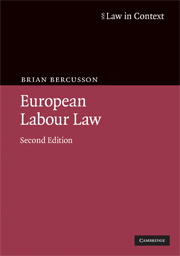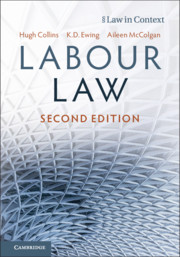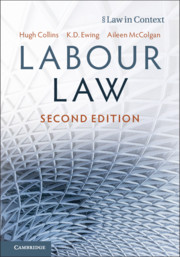Labour Justice
This book argues that the imagination of the worker-citizen, inherent in citizens' constitutional duty to work, is the very foundation of constitutional citizenship and its social justice agenda. The design of social justice in the constitution takes labour as its core ideological and political commitment, seeking to treat workers fairly for their social contribution through work. Employing this constitutional design, this book evaluates the recently repealed labour law against the constitutional metric of social justice. Drawing on the components of social justice, the book evaluates the new labour law in its capacity to promote market-based distribution, respecting basic individual liberties; the complementary redistribution of public goods, upholding the principle of solidarity; and worker participation in decisions about the operation of the market and the state. In offering such evaluation, the book conceives of work in its wider social relationship in contrast to its narrower private exchange rationale.
- Examines constitutional duties as a core component of the idea of citizenship
- Explores the obligation of labour law to further the different components of social justice conceived under the Constitution
- A holistic evaluation connects the different disparate components of labour rights, social security, and collective action
Product details
November 2024Adobe eBook Reader
9781009488204
0 pages
This ISBN is for an eBook version which is distributed on our behalf by a third party.
Table of Contents
- Acknowledgement
- Preface
- Introduction
- 1. Labour's Constitution: Pursuing Economic, Social, and Political Justice
- 2. Individual Autonomy, Freedom of Contract, and the Labour Market
- 3. Solidarity and Social Welfare
- 4. Industrial Democracy and Republican Citizenship: Collective Action in Resource Redistribution
- Conclusion.







.jpg)